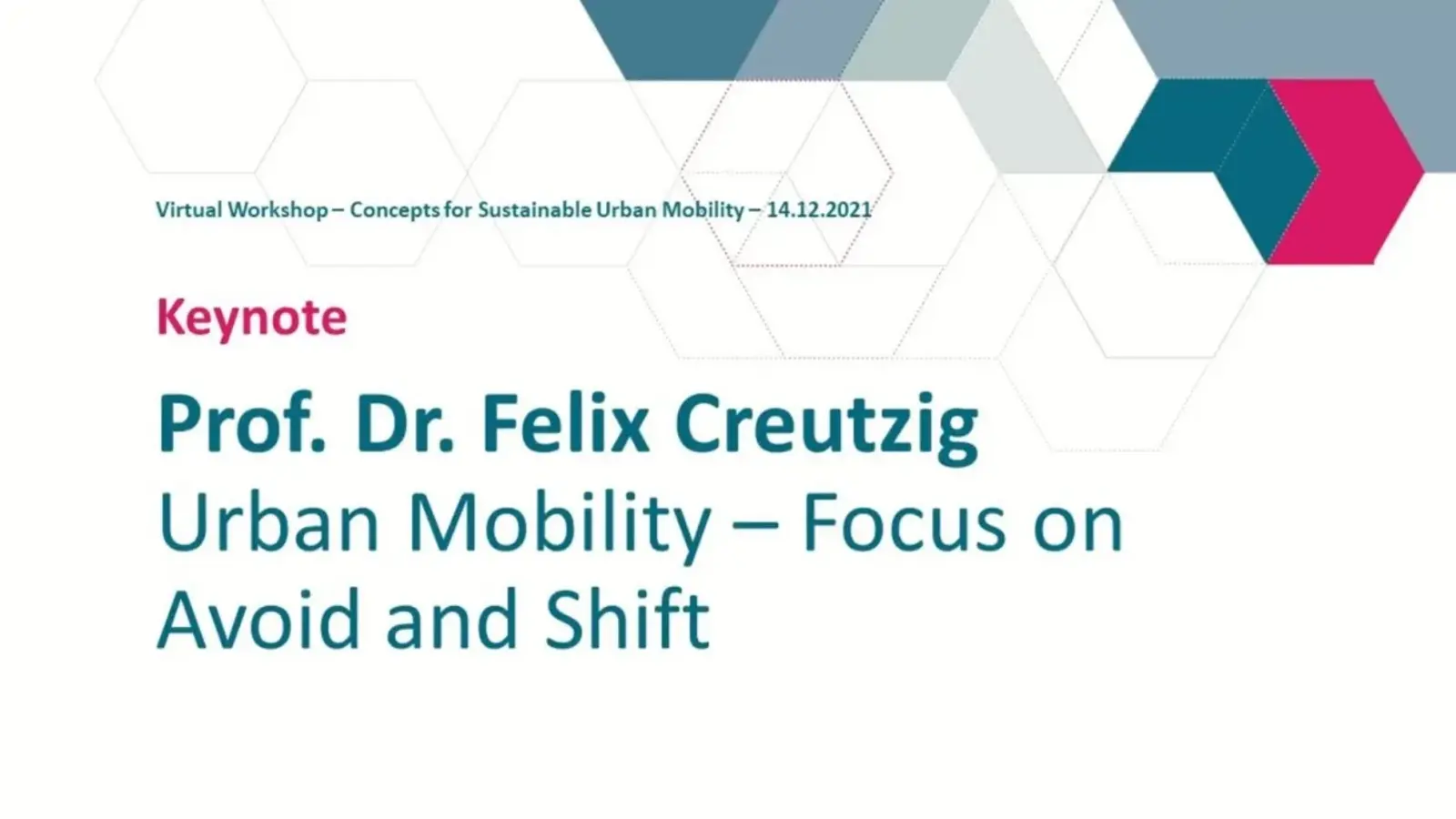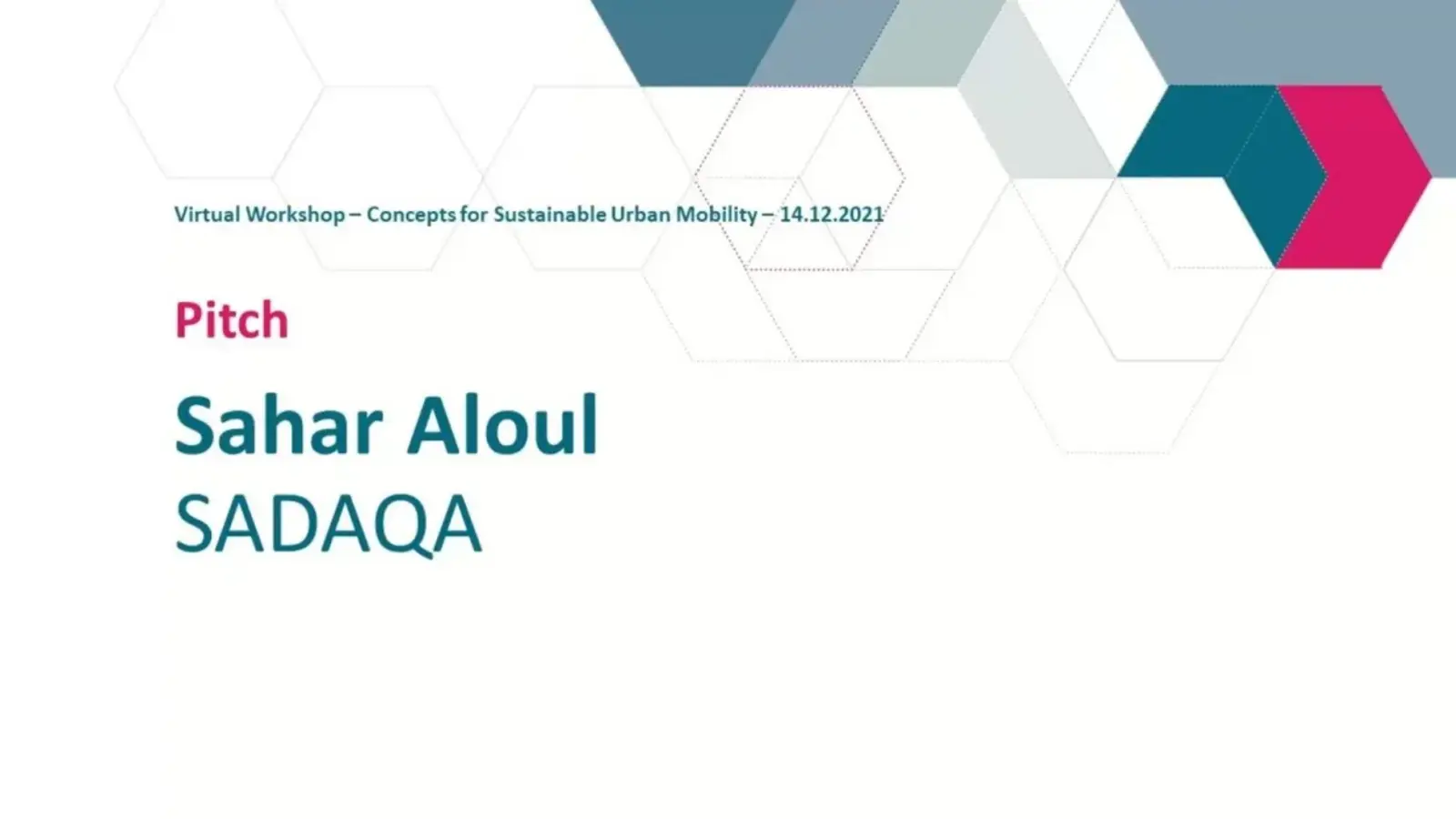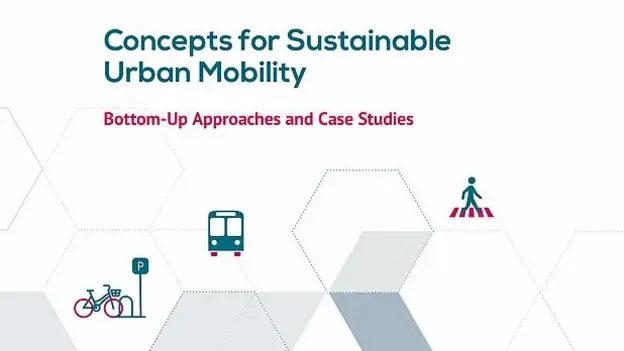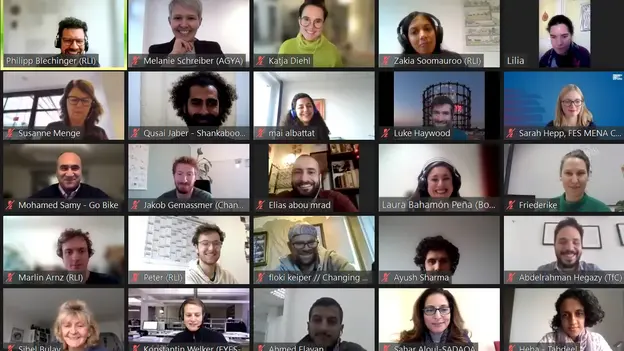Berlin Project
Towards A Sustainable Mobility Future
Stakeholder Workshop & Policy Recommendations
Transport remains the troubled child of decarbonisation. About one quarter of direct greenhouse gas emissions come from the transport sector. Congestion, pollution, and high transport costs are the direct consequences of car-centered mobility concepts in most cities. Successful change must therefore also include traffic avoidance measures, e.g., through smart urban planning and digitization, as well as measures to shift traffic from cars to public transport, cycling, or walking. Here, bottom-up community initiatives are increasingly at the centre of efforts to facilitate an equitable and sustainable mobility transition.
It was a pleasure to learn about the diversity of initiatives working towards sustainable urban mobility in their cities. Especially the international comparison opened up many inspiring perspectives.
Katja Diehl, She Drives Mobility
Recommendations for inclusive, accessible, and gender-sensitive mobility are key
Reason enough for AGYA members Dr. Philipp Blechinger and Dr. Djamel Djenouri to organize a transdisciplinary workshop with more than 50 mobility experts, policy-makers, and civil society initiatives from Amman, Beirut, Berlin, Bogotá, Cairo und Ramallah. Within the framework of this stakeholder workshop, seven recommendations for action were developed, which are published in the policy paper ‘Concepts for Sustainable Urban Mobility: Bottom-up Approaches and Case Studies’.
The recommendations are anchored around three thematic clusters: Cycling in Cities, Transport and Gender Equity, as well as Sustainable Transport Policies. The topics addressed in the recommendations thus span from gender equity and social justice to alternative modes of transportation, as well as smart and people-friendly urban planning, some of which are teased below:
- Shift from car-centered towards human-centered planning
- Reduce transport needs through mixed neighbourhoods and digital work
- Incentivize alternative (e.g. green and safe) concepts of shared mobility (e.g. only electric vehicles, female drivers)
- Increase accessibility of public transport by optimizing routes and schedules; for less densely populated areas, establish on-demand public transport
- Implement safety measures such as women-only-passenger cars, female guards, ticket inspectors, and appropriate infrastructure at stations or bus stops to achieve just and gender-equal public transport systems
- Empower and leverage the work of bottom-up initiatives, as community and stakeholder engagement is crucial in all policy and planning processes
According to the editors of the policy paper, key criteria for the development of future mobility concepts are inclusivity, gender equity, affordability, and accessibility. The key success factor for a targeted transformation towards sustainable urban mobility, however, is public acceptance and support.
A feminist approach differs from the narrow view in planning, since it does not focus exclusively on technical solutions. We focus on accessibility, safety and social justice.
Susanne Menge, Member of the Parliament and Spokesperson, Federal Association for Mobility and Transport – Green Party Germany, Founder of FRAUEN MACHEN MOBIL(ITÄT)
Promoting North-South-South knowledge exchange: Sustainable mobility initiatives from Amman, Beirut, Berlin, Bogotá, Cairo und Ramallah
Although civil society initiatives are a powerful catalyst to push forward change processes in the field of mobility transition, they often lack the capacities or network to connect at an international level and to share their cutting-edge ideas on a larger scale. In pitch presentations, the invited stakeholders exchanged on the pioneering work of selected civil society initiatives from Berlin such as Kiezblocks/Changing Cities, ParkplatzTransform and Pop-Up Bike Lanes (Bogotá/Berlin) as well as from Arab cities: Riders' Rights (Beirut), Tabdeel, Sekketak Khadra and Transport for Cairo (Cairo), Sadaqa (Amman), and Shankaboot (Ramallah).
What became very clear in this context was that the work of the individual initiatives is as diverse as their cities themselves. Sadaqa, for instance, is a women’s rights organization in Amman that is eagerly working towards a safer and equitable public transport system by decisively considering the gender perspective of transportation. The organization aims to establish policies that meet gender-related needs, such as well-lit bus stops.
Kiezblocks/Changing Cities from Berlin, on the other hand, aims to free residential areas from motorised through traffic in order to create safer and more pleasant neighbourhoods with resting areas, meeting places, playgrounds and green spaces.
According to the motto ‘Less space for parking – more space for people’ ParkplatzTransform follows a similar goal, but uses different tools. The initiative conducts participatory mappings of parking space to digitally visualize the extent of urban parking spaces and to suggest more sustainable forms of uses.
- Disciplines Involved
- Energy Engineering, Mobility Studies, Architecture, Urban Studies
- Event Date
- 14 December 2021
- Venue
- online
- Cooperation Partners
- Technische Universität Berlin, Germany
- Reiner Lemoine Institute, Germany
- Funding Institution
- Berlin Senate Department for Science, Health and Care
- Affiliated Projects
- Global Berlin in the 21st Century
- About Health and Happiness in Cities – AGYA Podcast Happyopolis
- Arab Berlin: Dynamics of Transformation
- Papyrus to Twitter: Museum Presentations in a Digital Age
- Project Title
- Urban Smart Mobility Concepts in Berlin
- Date
- 2021
- Funding Scheme
- Berlin Project
- Countries Involved
- Algeria, Colombia, Egypt, Germany, Jordan, Lebanon, Palestine
- AGYA Publication
- Concepts for Sustainable Urban Mobility: Bottom-up Approaches and Case Studies
Watch the keynote of Professor Creutzig
The sustainable urban transition is a key component of fighting climate change. Learn how the Avoid-Shift-Improve approach can be of benefit here! In his impulse lecture, he presents mitigation strategies on how to avoid emissions completely, shift away from vehicular towards more sustainable mobility, and technologically improve cars to achieve a full transition towards electromobility by 2040.

Watch the pitch presentation of the Jordanian initiative SADAQA
Fighting for gender-sensitive public transport: Get inspired by the pioneering work of SADAQA, a women’s rights organization committed to enhancing the reliability, safety, and accessibility of public transport for women in Amman. Jointly they establish policies to ensure that gender-related needs are met and necessary infrastructural changes implemented.




